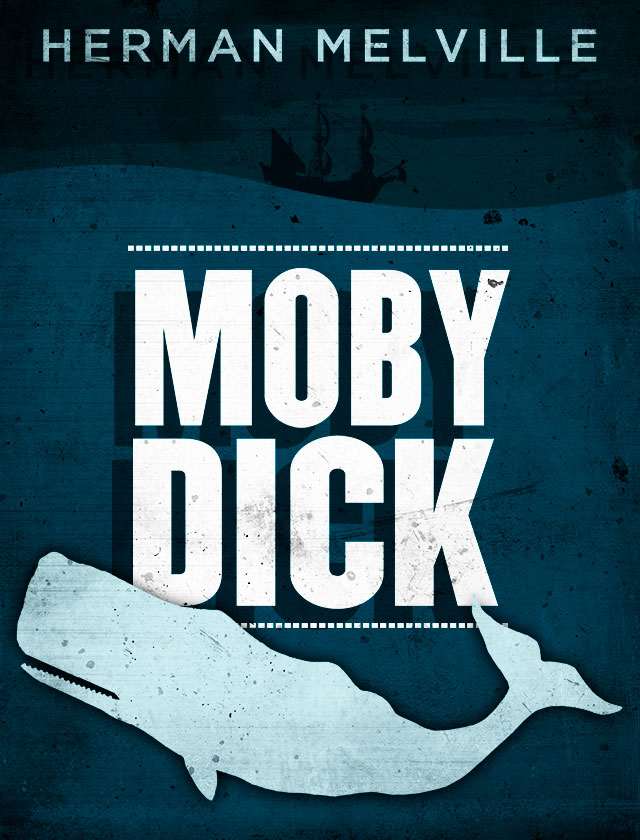Moby Dick
by Herman Melville
Key Quotes
1. That intangible malignity which has been from the beginning; to whose dominion even the modern Christians ascribe one-half of the worlds; which the ancient Ophites of the east reverenced in their statue devil;—Ahab did not fall down and worship it like them; but deliriously transferring its idea to the abhorred White Whale, he pitted himself, all mutilated, against it. All that most maddens and torments; all that stirs up the lees of things; all truth with malice in it; all that cracks the sinews and cakes the brain; all the subtle demonisms of life and thought; all evil, to crazy Ahab, were visibly personified, and made practically assailable in Moby Dick. He piled upon the whale’s white hump the sum of all the general rage and hate felt by his whole race from Adam down; and then, as if his chest had been a mortar, he burst his hot heart’s shell upon it.
This passage comes from Chapter 41, the chapter titled “Moby Dick,” which many critics consider the “heart” of the novel. Here, Ishmael speculates on the nature of Ahab’s obsession with killing Moby Dick and expresses a kind of sympathy with Ahab’s mad desire. For Ahab, Moby Dick is more than a whale; he symbolizes evil itself. Ahab believes that if he can destroy Moby Dick, he can destroy evil: “all the general rage and hate felt by his whole race from Adam down.” In using this reference, Melville broadens the possibilities for what Moby Dick symbolizes, as well. Not only is Moby Dick the external projection of Ahab’s own internal hurt, resentment, and rage, but he can also be seen as an embodiment of humanity’s obsession with evil and the human urge to destroy the evil within the self. It is this more general feeling with which Ishmael can personally identify. Of course, if evil is a constant, just as good is a constant, it cannot be destroyed, and it is only a function of Ahab’s madness which makes him believe that he has the power to destroy it. In this way, Ahab’s tragic flaw of pride leads to his demise; to pursue a...
Sign up to continue reading Key Quotes >